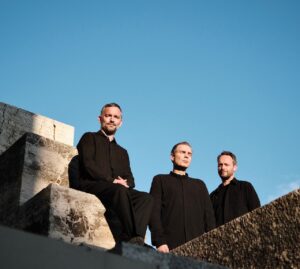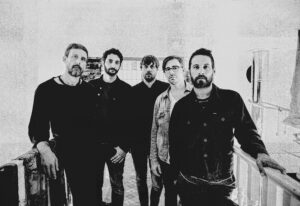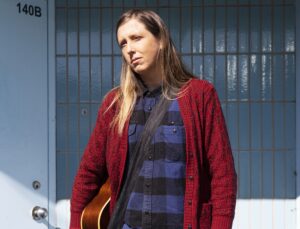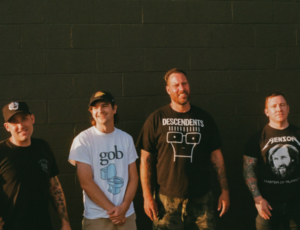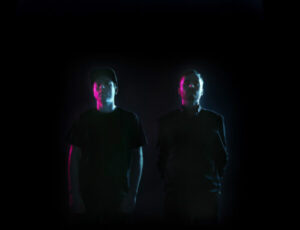Halloween may be over, but Martha Wainwright is still conjuring spirits. Less than a year after the French-Canadian chanteuse floored spectators at The Rio Theatre, in support of her latest album Come Home To Mama, she returned to Vancouver this past Saturday night intent on bringing France’s national diva Edith Piaf back to life.
Wainwright has performed this ritual before. Despite reservations about not being able to do the icon’s songs justice when producer Hal Willner first proposed the idea to Martha, she not only made an album of covers (Sans Fusils, Ni Souliers, à Paris: Martha Wainwright’s Piaf Record, recorded live in New York in 2009), but she toured that album to golden reviews in Australia, Europe, and the U.S. as well.
This past October 10 marked the fiftieth anniversary of Edith Piaf’s passing, so Martha, as part of the 19th Coup de Coeur Francophone de Vancouver, is giving the tribute a fourth go. This time, Wainwright finally privileges Canadians with what they’ve been missing, starting at The Fei & Milton Wong Experimental Theatre. It’s an appropriate venue name, considering Martha’s contemporary reinterpretations of Piaf’s timeless songs.
For Sans Fusils, Martha chose lesser-known songs that she thought were beautiful in their own ways (perhaps a veiled method of circumventing her apprehensions). Comprised of rare songs or not, the evening was initially difficult for Anglophones to follow as Martha not only sang exclusively in French (obviously) but spoke in it as well. However, she was accommodating, eventually switching between both national languages, albeit often mid-sentence.
The threads of conversation and stories told through song became easier to follow after a brief intermission during which the pregnant Wainwright encouraged the audience to drink “lots of wine” because she “technically” couldn’t have alcohol: “I haven’t been drunk in six months!”
Now joined by a drummer, Martha grabbed a guitar, and the quartet – which during the first set also consisted of her husband Brad Albetta on bass and Thomas Bartlett on piano – switched into her own, mostly English oeuvre. Most songs in the second half of the show came from Come Home To Mama, but Martha and the band couldn’t help throwing in a few more Piaf covers.
The French legend wasn’t the only spirit Martha conjured. She also venerated her own mother, the late Kate McGarrigle, with a solo acoustic rendition of “I Am a Diamond”. Alone under the spotlight, her unaccompanied moments, which included show-closer “This Life”, were among the night’s most reverent.
I never thought anything could threaten to outshine Martha’s voice at her own show, but Thomas Bartlett really brought something special to the songs. He has played extensively with The National and Antony and The Johnsons and collaborated with David Byrne, Beth Orton, and Norah Jones, to name a few. Knowing his background, when he scooched over to keyboard, it was no wonder his lively fingers were able to bring to life the subtle electronics on Come Home To Mama that never quite translated at The Rio.
Most amazing to this Anglophone was the music’s capacity to transcend verbal language. Granted, Martha was quite animated and provided context for some of Piaf’s songs, but even just hearing the emotion in her voice and feeling the psychological fervour of Thomas’ trembling piano sections, I could envision Piaf’s anguished protagonists: the distraught woman preyed upon by a mob of white lab coats… the woman tortured by having to choose between two men feuding over her heart… until one of them kills himself for her… Heightened by my vantage point, which gave me full view of the stage from side-to-side, ceiling-to-floor, the mostly hands-free Wainwright carried herself with the air of a stage actress, fully embodying the characters she sang about.
Halloween may have ended two nights ago by showtime, but the spirits were still alive at The Fei & Milton Wong Experimental Theatre that evening. Although Martha Wainwright was once apprehensive about resurrecting the music of a legend such as Edith Piaf, with a tribute so stunning, Wainwright proves to audiences, and most importantly herself, that she has nothing to fear.




